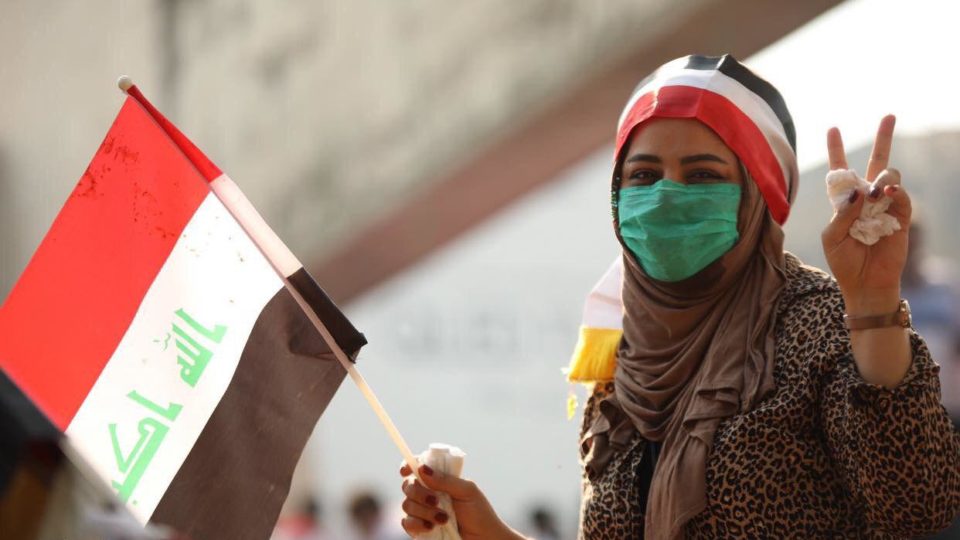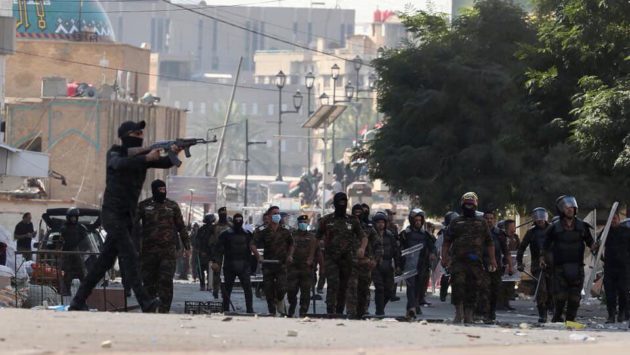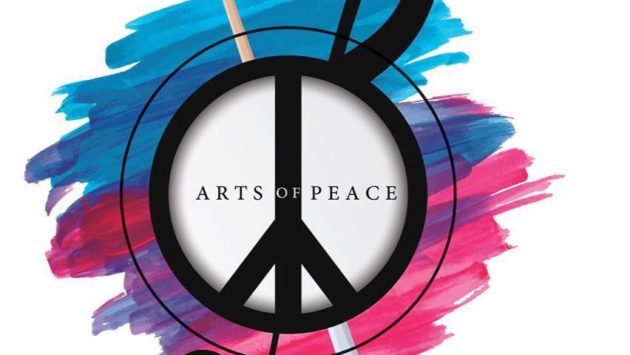Iraqis Have the Right to Protest for Better Lives, Repression and Intimidation of Human Rights Defenders Must End
On 1 October a new phase of social protests started in Iraq, this time authentic, spontaneous and very difficult for political parties or even civil society organizations to control. The protests have gradually come to be supported by a vast segment of the public as well as the main Iraqi syndicates: yesterday the Teachers’ Union launched a national 4-days strike, the Bar Association declared that they support civil disobedience, and students occupied several universities in the southern and central governorates and took to the streets in the hundreds of thousands.
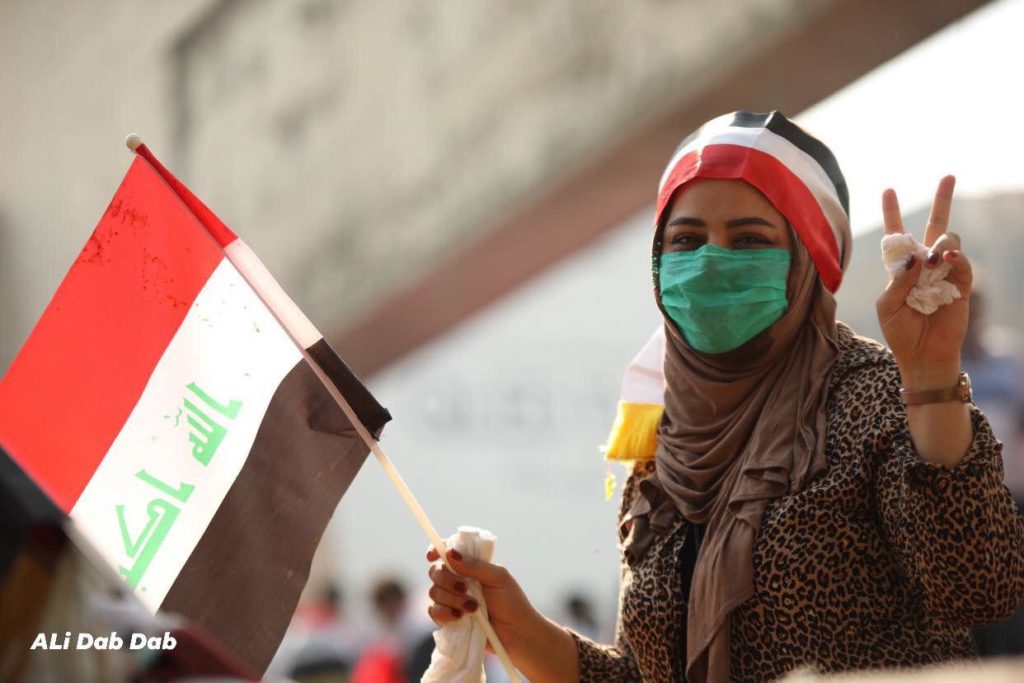
The movement was born of unemployed youth who rejected the political system established in 2003. They are asking for an end to corruption and the sectarian quotas in Iraqi politics, phony job opportunities and a fairer redistribution of wealth. They are largely nonviolent, though some governmental and political parties’ buildings were set on fire in the south following the first funerals of young demonstrators killed on the streets. Many women are also part of protests. At times they are protected by young male activists surrounding them, at others, they march in the front rows of demonstrations.
Protests quickly spread through most of Iraq, and in the first week about 150 unarmed civilians and 8 members of security forces died in attacks from the army and militia, anonymous snipers hiding on the roofs, armored police cars which drove at high speed into the crowds, and armed individuals infiltrating the demonstrations. Thousands of people have been injured, but precise numbers are not clear since doctors in the hospitals have been ordered not to collect and publicize these statistics. Still, we know that many are in critical condition. To date, the total number of civilian victims rose to about 250, 15 of whom were killed in Kerbala just in the last 24 hours. Violence is intensifying and the situation requires urgent attention by media and the international community.
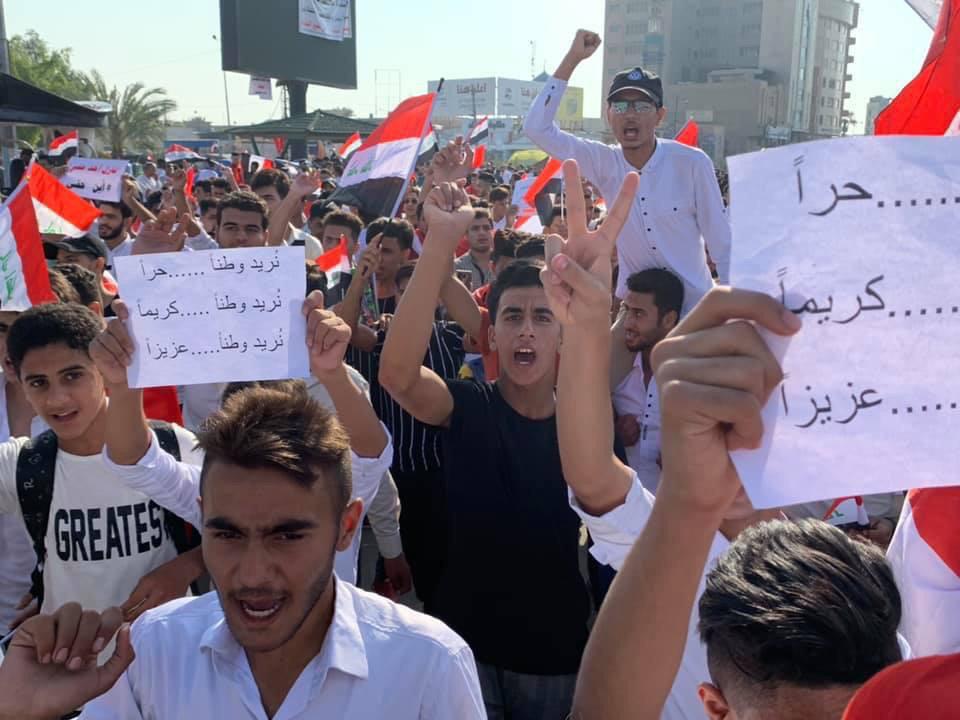
Human Rights Defenders across the country have been threatened, arrested or killed, notably Safaa al-Sarai yesterday in Baghdad. A health worker was arrested while she was treating patients in an ambulance, a doctor while he was preparing for surgery in a hospital, several bloggers in their homes. In Sunni cities people don’t dare to protest out of fear that the repression to follow would be crueler. Offices of several media agencies, TVs and newspapers have been attacked and raided by militia, and journalists have been badly beaten up. A lawyer was killed while he was going to meet an activist that he was going to defend. At least 30 Human Rights Defenders have mysteriously disappeared, others have been shot dead in their homes, like a young couple from Basra. Since 25 October, activitss have proclaimed a new “day of rage” and call for a change in government. The growing number of victims is simply making participation in the movement expand, and civil disobedience has spread even among families with children.
On 26 October, the government declared that it may apply the death penalty, justified through reference to existing anti-terrorism laws, for those who incite people to armed struggle, even on social media. But social media in Iraq is filled with pictures and videos that show the amazing creativity and nonviolent character of the protests. Some members of the Anti-Terrorism Forces and local police have tried to protect the demonstrators, and often it is not clear who is controlling the repression. The Iraqi government already promised important political and economic reforms but people fear these commitments are not credible. These doubts are compounded by a feeling among most Iraqis who are profoundly unsatisfied with the results of the first investigation into those responsible for excessive use of force among army and police.
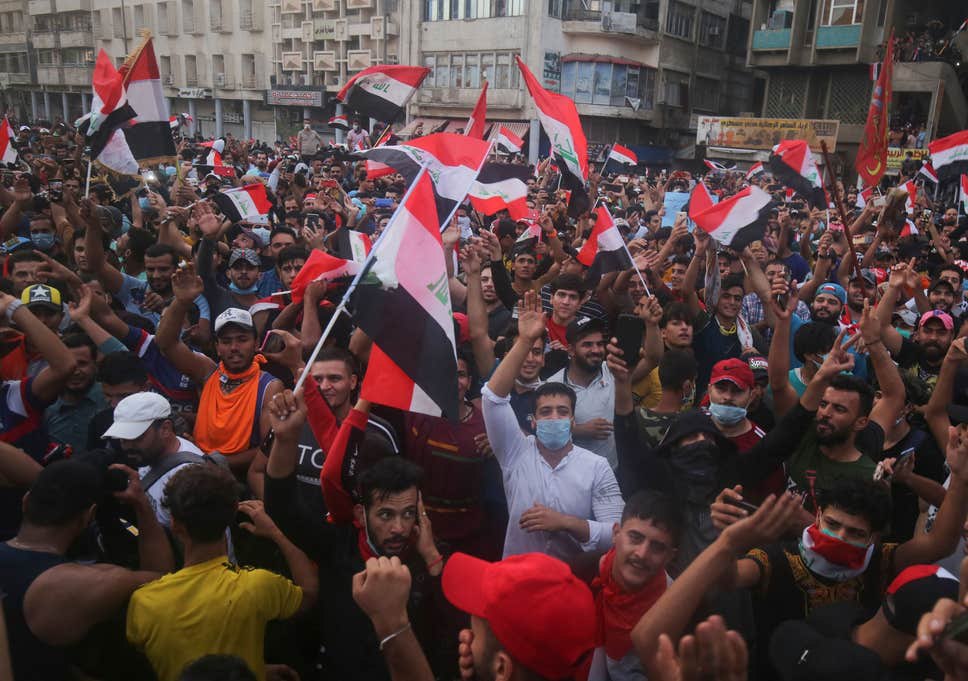
We, Italian associations, trade and student unions and research centers, ask for the protection of Human Rights Defenders, the end of curfews and of internet and media censorship in Iraq. We call for respect for freedom of expression and freedom of peaceful demonstration for all Iraqis. Massacres like the one in Kerbala yesterday cannot happen again on Iraqi squares. We ask international embassies in Baghdad and the United Nations to oppose more strongly the violent reaction of security forces. Young Iraqis know that democracy cannot be exported with wars but can only be gained on the streets, in solidarity with each other, hence they will not return home easily.
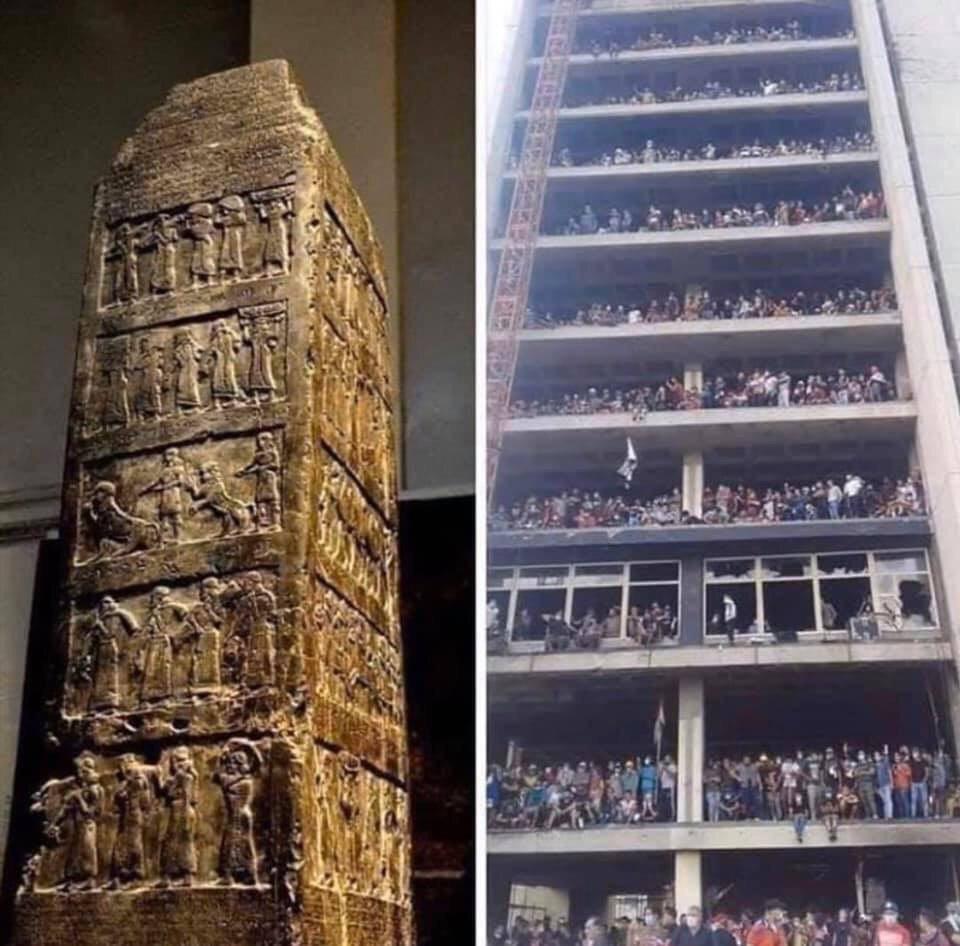
#Save_the_Iraqi _People
Rome, 29 October 2019
***
Endorsement by the main Peace and Human Rights NGOs, Networks, Research Centres, Students, and Lawyers Syndicates and Trade Unions in Italy:
Rete della Pace (Italian Peace Network)
AIDOS
ARCI
Articolo 21
Ass. Comunità Papa Giovanni XXIII
Associazione per la Pace
Assopace Palestina
A Sud
Centro Diritti Umani e Cattedra Unesco “Diritti Umani, Democrazia e Pace” (Human Rights Centre of Padova University)
CISDA
CGIL
Cultura è libertà
FIOM
FOCSIV
Giuristi Democratici
Lega diritti dei popoli
Libera Accademia di Roma LAR
International Reconciliation Movement – Italia
Movimento Nonviolento
Sport Against Violence – Italia
Terra Nuova
Unione degli Universitari
Università Popolare dello Sport UPS.
Un Ponte Per
Yaku

